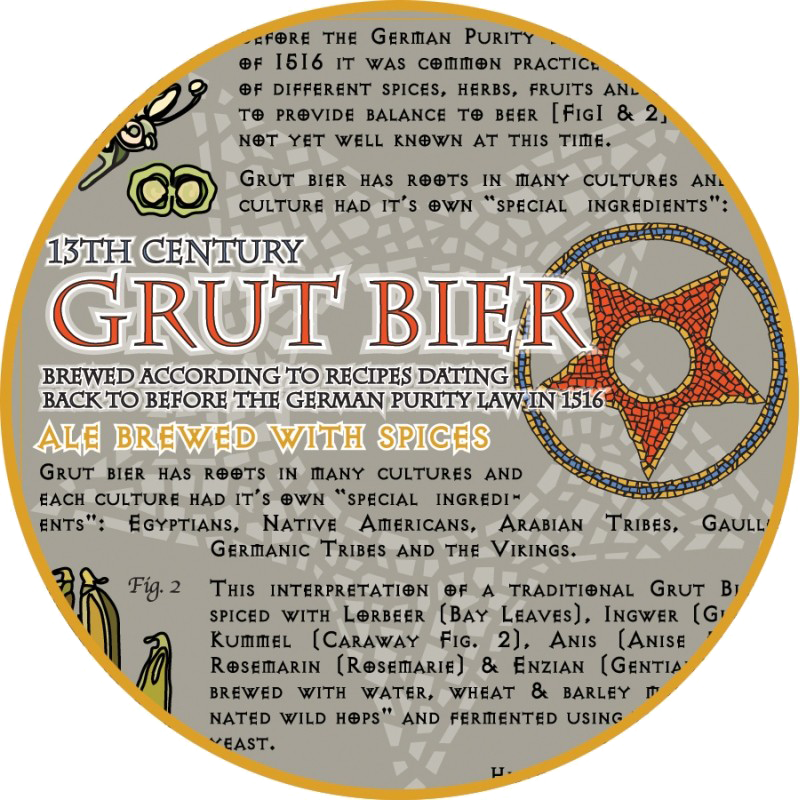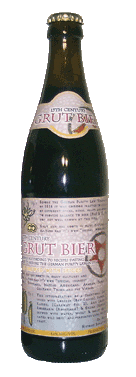

13th Century Grut Beer




Review Date 12/27/2008 By John Staradumsky
We all know how
those Germans (sticklers that they are for minutiae) like their beer simple
and unadulterated. In fact, they stress on it so that way back in 1516 the
Bavarians passed a law limiting the ingredients to water, barley, and hops
(they didn't know about yeast yet), though they made exceptions for wheat.
And they refused to join the German union in 1871 unless their law was
extended to the whole country. And it was, of course.
But wait. Hold on there, beer purist. Because beer has been around long
before 1516, and wasn't always seasoned with hops. Even in Germany, many
other spices were used to balance the natural sweetness of the malt, at
least before 1516 anyway. And now you can step back in time and see just
what those days might have been like when you pop open a half liter bottle
of 13th Century Grut Bier, another experiment in the "Historic
Signature Series" brewed in Munich by Dr. Fritz Briem.
13th Century Grut Bier pours to a straw-like whitish yellow color
with a huge spritzy head formation that seems to fade almost as quickly as
it formed. That tells me pretty nicely this is a wheat beer, if I hadn't
known that already. I'm pretty excited about the aroma on this one, and as I
set my nose to the grindstone (errr, the glass in this case) it's
immediately taken hostage by a veritable army of spices, parading by in
noble order one after another as I pick them out and analyze them.
I'd tell you what they are in the aroma, but hey, they're all about to make
an appearance in the palate, and I wouldn't want to reveal the plot on this
one too early, now would I? Though I can tell you I picked up the caraway
first and foremost.
Taking a sip, I like the refreshing, quenching wheat body immediately, tart
and crackery as it is. But the spices all show up quickly enough, again with
the seedy caraway reminding me of a fresh slice of rye bread, then the
woody, aromatic rosemary, the herbal, savory bay, and the wonderfully spicy
ginger. Anis is also used, though I don't really find it so much, and Enzian.
The finish is even tarter, maybe even a tad sour, and wonderfully drinkable.
I don't get any bitterness really, though there are wild hops used. I think
this experiment would have been a tad more interesting without them, just to
give us a taste of what beers spiced entirely without hops tasted like long
ago. Still, this is a delightful little beer, dry with spice in the finish,
and moderate in alcohol at 4.6% by volume.
A natural with meats of any kind. I'm sipping a bottle a few days after
Christmas, and imagine it would have paired magnificently with the leg of
lamb we served on Christmas Day, rubbed down as it was with olive oil and
rosemary.

Glad I tried it?
T
Would I rebuy it??
*Pricing data accurate at time of review or latest update. For reference only, based on actual price paid by reviewer.
(B)=Bottled, Canned
(D)=Draft